You are warmly welcome to the seminar hosted by Historians without Borders and the ICD Academy for Cultural Diplomacy:
Narratives of Power: Memory Politics in Russia, Germany, and the Contemporary World
This event brings together scholars, diplomats, and policy experts to explore the politics of memory and history in the current moment. Focusing on how not only Russia and other increasingly authoritarian regimes shape narratives of the past for present gains, and what the ideals of the German Vergangengheitsbewältigung could imply in the present, the discussions will examine strategies of remembrance, denial, and commemoration. In light of geopolitical tensions, the discussions will address how historical memory continues to influence foreign policy, national identity, and international relations today. The seminar aims to foster critical dialogue on the evolving role of the past in shaping the present.
This event is held as a part of History in Exile: Dialogue on Russian Memory and History Politics in the Nordic and Baltic Countries, a pilot project by Historians without Borders in Finland. Funded by the Nordic Council of Ministers, the project promotes dialogue between historians and history teachers as well as the public on Russian memory and history politics and its implications for historical research in Russian society.



For Remote Participants:
A streaming link will be uploaded to the event page on ICD’s website for those following the event online.
Registration for In-Person Participants:
Please complete the online registration form to confirm your participation.
Watch the recordings:
Watch the full playlist of recordings on YouTube.
Programme:
09:00–09:30 – Registration & coffee
09:30–11:00 – Discussion 1: Russian Memory Politics – A Precedent for Authoritarian Regimes Globally?
Opening words: Mark Donfried (ICD Academy for Cultural Diplomacy) & Erkki Tuomioja (Historians without Borders, Finland)
Speakers:
– Félix Krawatzek (Centre for East European and International Studies, ZOiS, Berlin)
– Alexej Uvarov (Ruhr University Bochum)
– Maria Domańska (Centre for Eastern Studies, OSW, Warsaw)
Moderator: Angelina Davydova (Institute for Global Reconstitution, Berlin)
11:00–11:30 – Coffee break & light snack
11:30–13:00 – Discussion 2: Vergangenheitsbewältigung as a Global Challenge
Speakers:
– Christoph Classen (Leibniz-Centre for Contemporary History, Potsdam)
– Henning Melber (Nordic Africa Institute, Uppsala)
– Antoon de Baets (University of Groningen)
Moderator: Natasha Tyshkevich (King’s College of London)
Natasha Konradova (Memorial – Nobel Peace Prize Laureate 2022) is unable to attend due to illness and will be replaced by Natasha Tyshkevich.
13:00–14:00 – Lunch
14:00–15:30 – Discussion 3: Historians without Borders
Speakers:
– Erkki Tuomioja (Historians without Borders, Finland)
– Jan C. Behrends (Leibniz-Centre for Contemporary History, Potsdam)
15:30–16:30 – Coffee reception
Speakers:
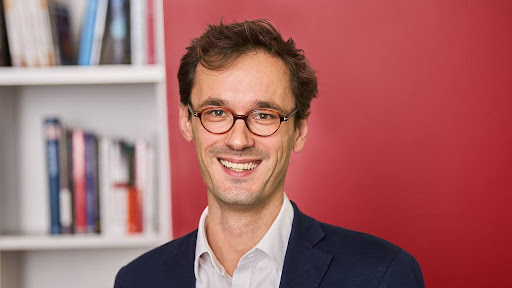
Félix Krawatzek is a political scientist and, since 2018, a senior researcher at ZOiS, where he coordinates the research cluster Youth and Generational Change. He is also associate editor of the journal Communist and Post-Communist Studies and co-spokesperson for the Political and Social Sciences Section of the German Association for East European Studies (DGO). Since September 2022, he heads the ERC-funded project Moving Russia(ns): Intergenerational Transmission of Memories Abroad and at Home (MoveMeRU). Félix Krawatzek’s research focuses on the comparative analysis of politics in Eastern and Western Europe. He is particularly interested in the role of youth in politics, the significance of historical representation in political processes, and questions related to migration and transnationalism. Before joining ZOiS, Félix Krawatzek was a British Academy Postdoctoral Fellow at the University of Oxford (Department of Politics and International Relations), where he also completed his PhD. From 2018 to 2024, he was an associate member at Nuffield College (University of Oxford). He has been a visiting scholar at Sciences Po Paris and the Minda de Gunzburg Center for European Studies at Harvard University.
Picture: ©Annette Riedl
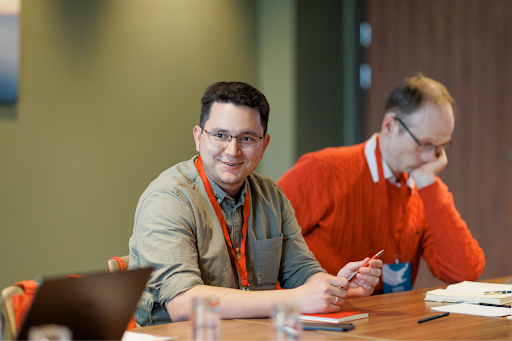
Alexey Uvarov, Dr. des., is a historian and political scientist. He defended his dissertation at the University of Bonn in 2024 on the continuity of Russian statehood in symbolic politics. His research interests include Russian and East European history, symbolic politics, and memory politics. Since August 2025, he has been working as a postdoctoral fellow at Ruhr University Bochum (Fedor Stepun Fellowship). Previously, he was a Gerda Henkel Foundation “Scholars at Risk” fellow. His publications have appeared in Osteuropa, Dekoder, Meduza, and Novaya Gazeta Europe.
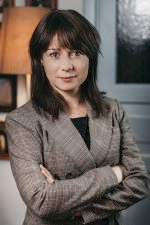
Dr. Maria Domańska is a Senior Fellow at the Warsaw-based Centre for Eastern Studies (OSW). She specializes in Russian domestic politics, including the power elite, opposition, formal and informal aspects of the political system, state ideology, the politics of memory, and domestic determinants of Russia’s foreign policy. From 2006–2015 she worked at Poland’s Ministry of Foreign Affairs, including as Head of the Political Section at the Embassy of Poland in Moscow (2012–2015).
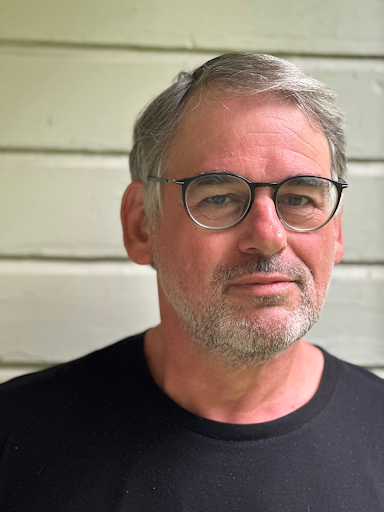
Dr. Christoph Classen is a research associate at the department of Contemporary History of Media and Information Societies at the Leibniz-Centre for Contemporary History in Potsdam. He studied psychology, history, and German language and literature at the University of Hamburg and received his PhD from the Free University of Berlin in 2003 with a thesis on fascism and antifascism in East German radio programmes (1945–1953). Since 1997 he has been a research associate at the Center for Contemporary History Leibniz-Centre for Contemporary History. He has also taught at the Friedrich-Meinecke Institute of the Free University of Berlin and the Historical Department of Potsdam University. In addition, he has been involved in editorial work for scholarly communication platforms and journals, such as H-Soz-u-Kult, Zeitgeschichte-online, and VIEW. Journal of European Television History and Culture. His research focuses on media history, media and politics during the Cold War, cultural memory studies, and political culture.
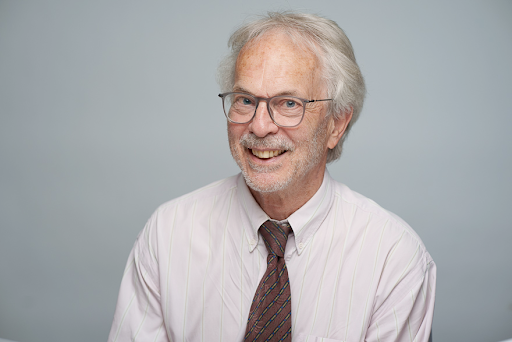
Henning Melber is a former Research Director and now Associate of the Nordic Africa Institute in Uppsala, Extraordinary Professor at the University of Pretoria and the University of the Free State in Bloemfontein and a Senior Research Fellow with the Institute for Commonwealth Studies at the University of London. His latest book is “The Long Shadow of German Colonialism – Amnesia, Denialism and Revisionism” (London: Hurst 2024; in German translation Münster: Unrast 2025).
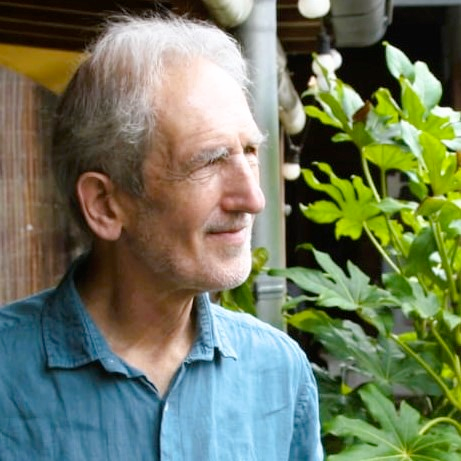
Antoon De Baets is emeritus professor of History, Ethics, and Human Rights at the University of Groningen, the Netherlands. He is the author of about 250 publications on the censorship of history, the ethics of historians, and the history of human rights, including Responsible History (2009) and Crimes against History (London: Routledge, 2019), and, most recently, A Human Rights View of the Past and Preambular History (both 2025). He is the founder–coordinator of the Network of Concerned Historians (1995–), President of the International Commission for the History and Theory of Historiography (2022–), member of the Academia Europaea (2024–), and chair of the Scientific Advisory Commission of the nine-volume government-commissioned but independent research project “The Netherlands and Afghanistan 2001–2021” (2023–). He was awarded the Forschungsfreiheitspreis (Freedom of research prize) “Lapis animosus” by the Swiss Historical Society (July 2025). He is the editor of the forthcoming Palgrave Handbook of Attacks on History (2027). A complete curriculum vitae is available here. For his ORCID, see here.
Moderators:
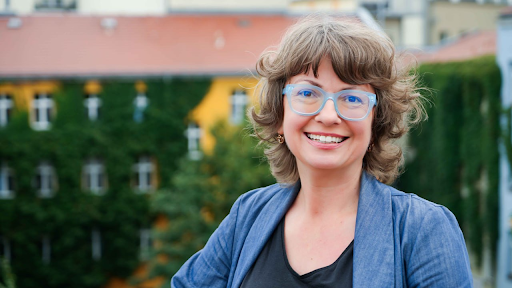
Angelina Davydova is an environmental and climate journalist, co-host of The Eurasian Climate Brief podcast, and a fellow at the Institute for Global Reconstitution (Berlin). She is also a climate/environmental projects expert with the Dialogue for Understanding e. V, a lecturer and trainer in climate/environmental/general NGO communication, and an observer of the UN climate negotiations (UNFCCC) since 2009. Angelina is also an expert and co-editor with the Ukraine War Environmental Consequences Work Group and a councillor with the World Future Council. She is based in Berlin, Germany.
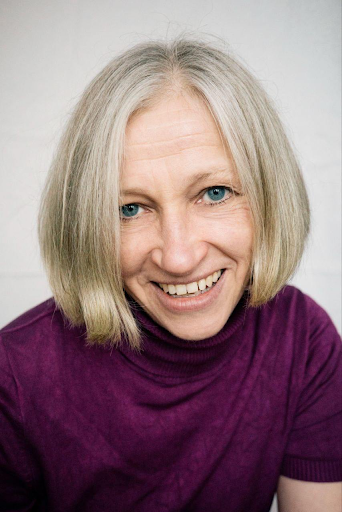
Natasha Konradova is a journalist, researcher, and author of academic and artistic projects. She holds a PhD in cultural studies (2001) and has worked as a journalist and editor for various media, including Polit.ru, Vokrug Sveta, and Radio Free Europe/Radio Liberty. Based in Berlin since 2015, she is the author of “Archeology of the Russian Internet: Telepathy, Teleconferences, and other Cold War Techno-utopias” (in Russian, 2022) and co-author of several popular science projects. She has also contributed to various books, exhibitions, and multimedia projects, mainly focused on research-based art and media archaeology. Since 2023, she has been leading the Memorial’s school history competition “A Person in History. (Post-)Soviet Experience.”

